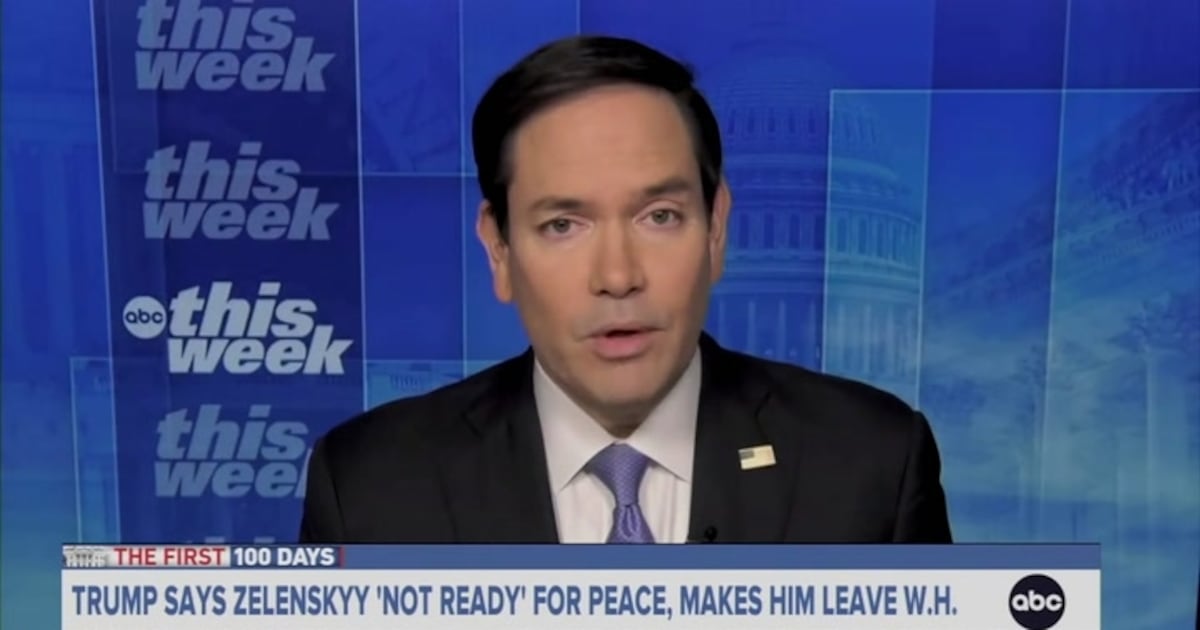The White House has settled on a former high-ranking Pentagon official to replace Janet Napolitano as Secretary of the Department of Homeland Security, two senior Obama administration officials confirm to The Daily Beast.
President Obama plans to announce his intention to nominate Jeh Johnson, who served as the Defense Department's general counsel during the administration's first term, at a White House ceremony tomorrow, one of the sources said.

Johnson, a well-known and trusted figure in the Obama White House, was a central player in many of the administration's most sensitive national security and counterterrorism policies, including the ramping up of the drone program, the revival of military commissions to try suspected terrorists, and the repeal of the Defense Department's ban on gays serving openly in the armed forces.
Johnson's experience dealing with counterterrorism and cyber-security threats will comfort many on Capitol Hill. He is less versed in the areas of disaster relief and immigration enforcement, also key elements of the DHS mission. Still, administration officials do not expect the nomination to be especially polarizing and are hopeful Johnson will receive a relatively warm reception in Congress.
"The president is selecting Johnson because he is one of the most highly qualified and respected national security leaders, having served as the senior lawyer for the largest government agency in the world," a senior administration official told The Daily Beast on the condition of anonymity.
If confirmed, Johnson would be the fourth secretary of DHS, a department that was established in the wake of the September 11 attacks in one of the largest expansions of the federal government in recent times. Napolitano stepped down in September to become president of the University of California System.
Johnson, who did not respond to multiple requests for comment, resigned from the Defense Department last December and rejoined the New York-based law firm where he worked before joining the administration in 2009.
Johnson, 56, began his legal career as a federal prosecutor in New York's Southern District. Active in Democratic party politics, Johnson has moved frequently between his law firm and public service. He was general counsel to the Air Force during the Clinton administration and has advised the presidential campaigns of both Obama and John Kerry on national security policy. After leaving the administration, Johnson had been mentioned as a potential candidate for numerous high-level legal jobs in Obama's second term, including White House counsel and possibly Attorney General in the event that Eric Holder stepped down.
Johnson has earned Obama's personal and political loyalty. He was one of Obama's earliest supporters after the then-senator from Illinois decided to run for president. Johnson held fundraisers for him and trudged through the snows of Iowa and West Philadelphia knocking on doors for the candidate. A fundraiser at his suburban New Jersey home was highly valued by the Obama campaign since, at the time, Hillary Clinton and her family's machine dominated political fundraising in the New York area.
His appointment to the top job at DHS comes as something of a surprise. He was not among the dozen or so names that quickly emerged as potential successors to Napolitano when she announced her decision to resign last July. As it turned out, many of those who were most prominently mentioned, including New York City Police Commissioner Ray Kelly, former U.S. Coast Guard Commandant Thad Allen, and John Pistole, head of the Transportation Security Administration, never even made the White House short list. None of them was interviewed for the job.
Homeland Security is one of the toughest management challenges in the federal government. It is a sprawling agency that handles a vast array of pressing security and policy concerns, including counterterrorism, immigration, disaster relief, and cyber-security. The 240,000-employee department was cobbled together from 22 separate agencies in the wake of the 9/11 attacks and reports to no less than 100 different congressional committees and subcommittees. Still experiencing considerable growing pains, running DHS will require someone with a forceful personality and a sharp set of bureaucratic skills. Johnson has never managed an entire government agency, but he has overseen one of the largest law firms in the world: Ten thousand civilian and military lawyers work for the Department of Defense all over the world.
Johnson was a familiar face at high-level White House meetings and has a good personal relationship with Obama dating back to the 2008 presidential campaign. On national security matters he is known as a pragmatist who for the most part stoutly represented the institutional interests of the military, and was often hawkish on the use of military force during internal administration debates.
Still, he could be relied on to advance the White House's legal agenda within DOD; he'd often refer to himself as "the president's man" at the Pentagon. He adeptly shepherded some of the most legally and politically fraught policy matters at DOD. Chief among them was the repeal of the military's ban on openly gay military service, known as "don't ask, don't tell." Johnson co-chaired a working group with Army General Carter Ham to study the impact of ending the restrictive policy. After surveying the opinions of thousands of active service members, Johnson and Ham issued a report concluding that repealing the policy would pose little risk to military effectiveness. The White House was pleased with Johnson's guiding of the process.
There were other occasions when Johnson's legal judgments conflicted with Obama's policy goals. Perhaps the most contentious legal disagreement with the White House came in 2011 over the decision to use force in Libya without Congressional authorization. Johnson, along with lawyers for the Justice Department, concluded that U.S. participation in a Libyan air war was covered by the War Powers Resolution and would therefore require Congressional approval. Obama, however, sided with administration lawyers who advised that the limited engagement did not amount to "hostilities" as defined by the War Powers Act.
Throughout his tenure at the Defense Department, Johnson deftly navigated Washington's ideological crosscurrents. He developed strong relationships with the military brass as well as with member of Congress on both sides of the aisle. He's even managed to become a favorite of Rachel Maddow, the progressive talk show host on MSNBC.
As the Pentagon's top lawyer, Johnson was deeply involved in hundreds of sensitive counterterrorism and military operations. His views evolved on targeted killings, leading him over time to believe that the administration needed clearer and more transparent procedures for the controversial strikes. He played a key role in developing the policy to start shifting the drone policy away from the CIA and over to the military.
Johnson was brought into the loop on the bin Laden raid late in the process, weighing in on the legal issues surrounding the operation. On the Sunday morning of the secret mission he went to church—not a regular habit for him. He felt jittery throughout the day. To calm his nerves, he planted impatiens in his Georgetown garden.
Johnson was trusted enough in the White House to publicly broach the delicate topic of how and when the war on terror might end. In a December 2012 speech at the Oxford Union, the British university's fabled debating society, Johnson said: "Now that the efforts by the U.S. military against al Qaeda are in their 12th year, we must ask ourselves, how will this conflict end?" A few months later, President Obama explored the same conundrum in a major counterterrorism address at the National Defense University.






